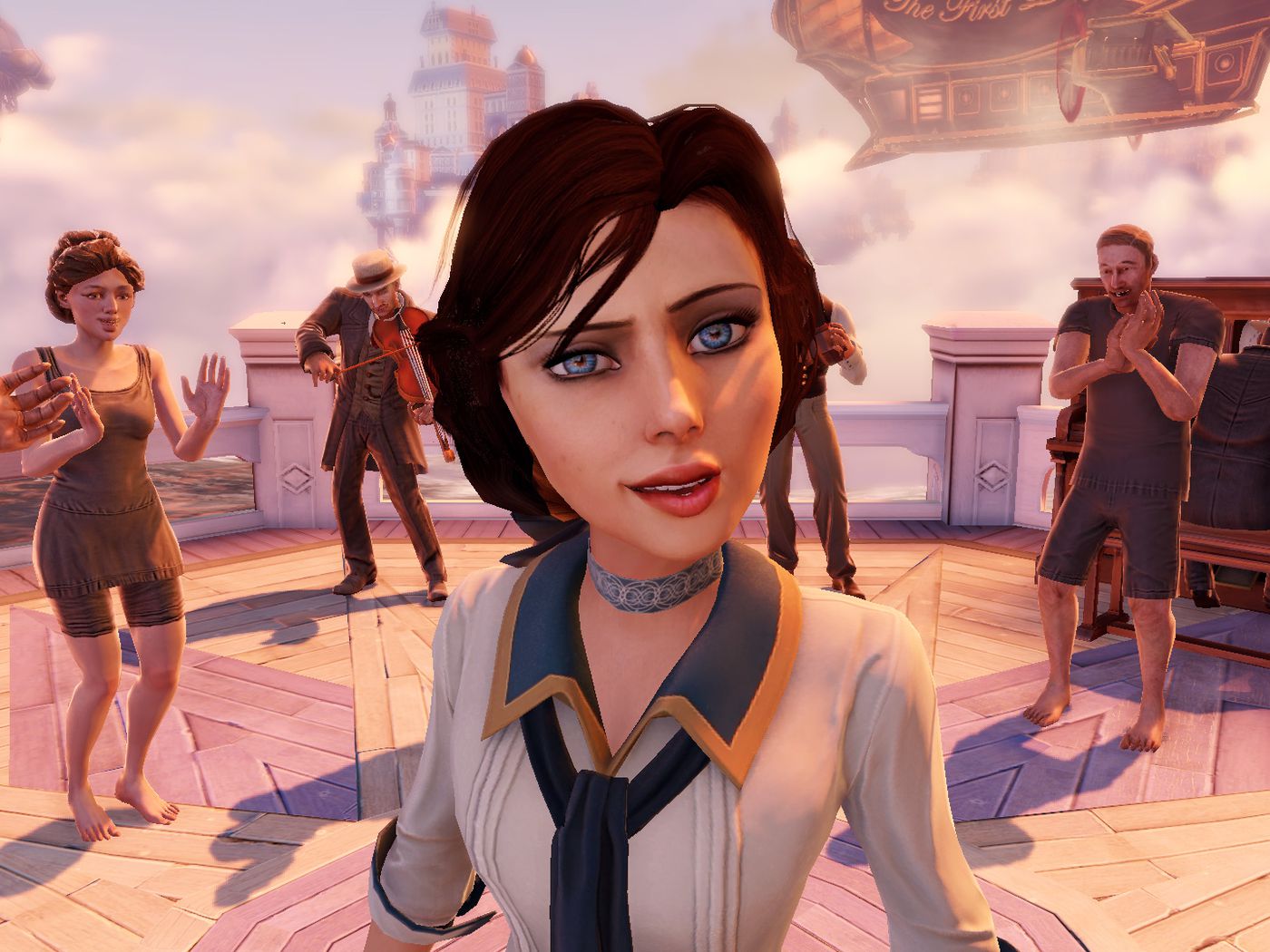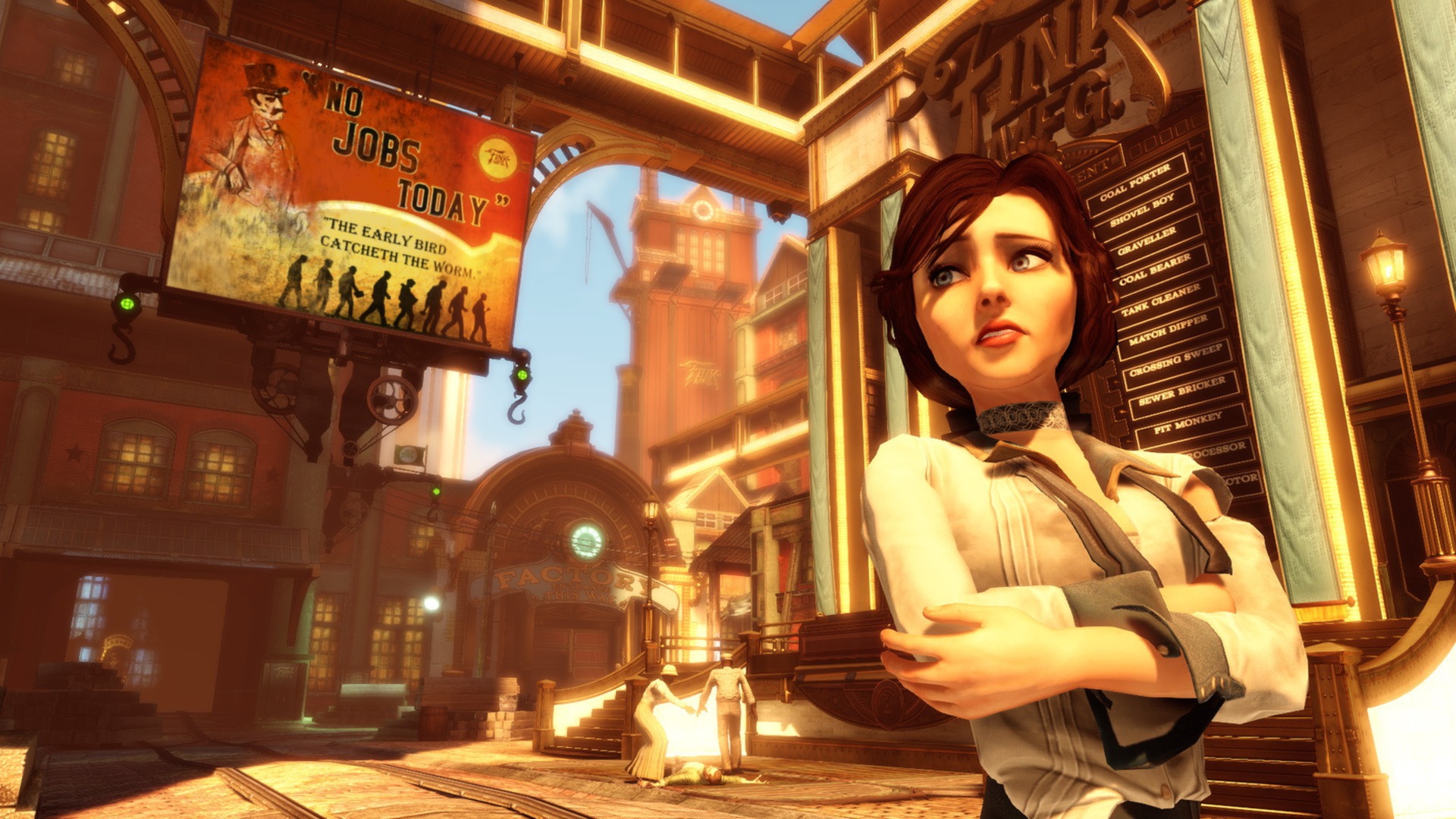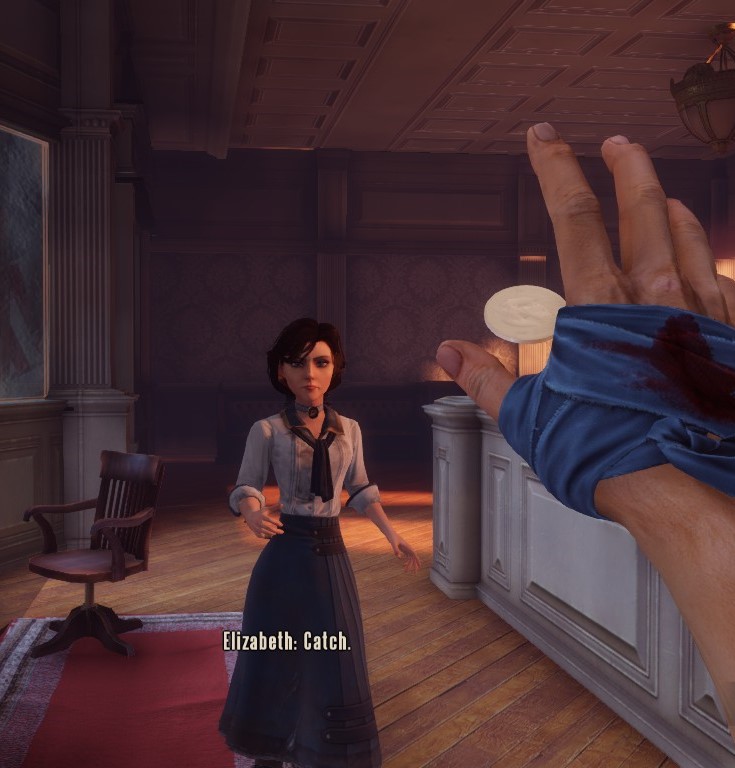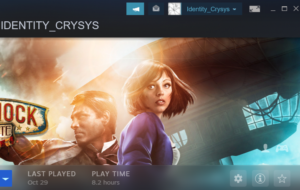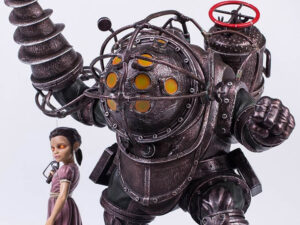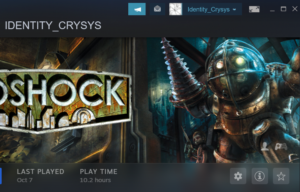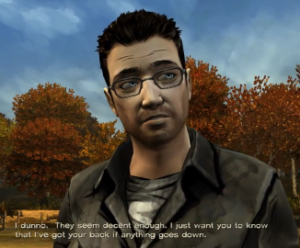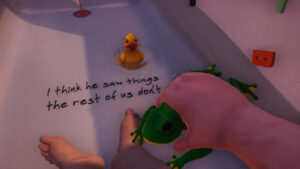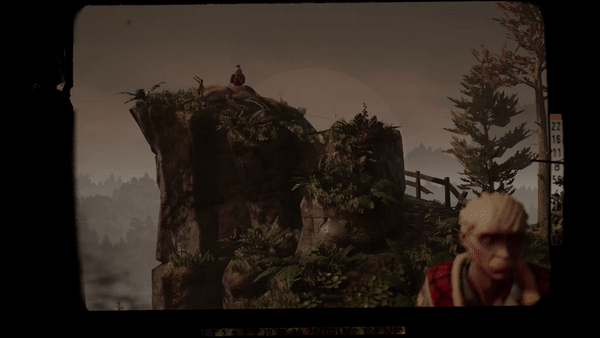It is no small feat to effectively pull off executing a video game largely rooted around philosophical themes. Croteam, however, does this skillfully in crafting The Talos Principle. In a nutshell, the game tells the story of a newly activated android attempting to seek the truth about himself, his surroundings, his purpose, and the nature of reality itself. It could largely be viewed as a biblical allegory for one of the text’s earliest stories, that of Adam and Eve in the garden of Eden, which I will explain in greater detail later. It would take a man far more patient than I to fully explore and comprehend precisely the implications put forth by this game but, on an analysis basis, it would be prudent to discuss how exactly it uses the unique aspects of video games as a genre. Nearly all of the game’s mechanics relate back to the game’s core concepts, themes, and setting. In order to reinforce the story the game intends to tell, The Talos Principle masterfully uses many traditional mechanics of video games to their advantage and incorporates its own as well by connecting everything in sight to their central story and thematic concepts.
It makes the most sense to approach an analysis of The Talos Principle in a chronological manner relating to how much the player is aware of at any given time. Because of how much the game plays with the player’s perception and knowledge of the world around them, what exactly is let on at certain periods is tailored extremely carefully to maximize the feeling of psychological progression and to avoid information overload and subsequent confusion (although with any type of philosophical exploration some confusion is bound to arise regardless). What strikes me in particular about the game’s introduction is its manner of making the player aware that they are, in fact, something not entirely human in nature. In Bioshock, the central protagonist only realizes that he is really a human experiment raised, genetically manipulated, and brainwashed to kill his own father halfway through the game as Frank Fontaine tells the player that “[they were] genetically conditioned to bark like a cocker spaniel when [he] said ‘would you kindly’” (“Rapture Central Control”). This is a massive revelation for the player, and entirely changes the way they look at the game. The Talos Principle, however, introduces this concept to the player almost immediately as the player raises their evidently robotic hand to block the sun’s light from their vision (aA01.). This subversion of expectations effectively leaves the player in the dark about what exactly they are stepping into; where many games would leave the impact of this to later in the game, The Talos Principle introduces this heavy concept early in the experience to move on directly to the deeper questions and themes they want to discuss.
The Talos Principle establishes much of its lore and thematic value via the use of text files and interactions found on computer terminals interspersed within the environment in which the player exists. These terminals serve multiple purposes, housing not only text documents ranging from silly chat logs between artificial intelligence developers to bleak acknowledgements of humanity’s imminent demise to excerpts from the works of Hippocrates from 400 BCE but also a sentient program that will incessantly poke holes in everything you thought you knew about reality. These features are not unlike Bioshock’s audio diary recordings in that they are entirely optional and the game can be completed without them entirely, but the value these elements hold within The Talos Principle is far more significant than simply extra story context. In reality, the texts and interactions you can engage with in the game are what really bring it to life. Firstly, the text files found on the terminals often look much like the following:
From: %442() Li
To: 69.74.657@2.61.746.96
Subject: F 6E
The way I see it, the world doesn’t come with a manual. You gotta figure it out for yourself. A bit here, a bit there, put it together, try to make sense of it. I’m pretty sure there is a truth, but that doesn’t mean everyone who claims to know it really does. Then again, that doesn’t have to be a bad thing! We live in an amazing world and searching for the truth can be a real adventure. Plus it’s good for the brain.
Anyway, just some rambling thoughts from your old man. Don’t let this stuff get you down. You’re young, you’ve got loads of time to figure it all out.
Love, Dad (aA01.).
The seemingly random sequence of numbers and symbols in this and many others of the numerous text documents is actually hexadecimal coding. In particular, the sequence above spells out “iteration,” one of the first hints let on that you are only one of many in a long chain of intelligences that have been through the trials before you; this will become relevant later. No means of translation is given to the player within the game, so if they do want the extra context by diving into the encoded phrases, they must do so by going out of their way to engage, giving another level of depth to the medium. Minimal to no context is given for any of the texts available for viewing so the reader has to piece together any new information they gain essentially from scratch each time they encounter a new piece of the puzzle. As the player struggles to comprehend what exactly their situation is and what they are meant to or want to do, they are constantly forced to restructure their entire understanding while the game feeds new data to them. As Anthony Burch puts it, “videogaming is a medium of choice and interaction, it only makes sense that the player be allowed to choose how much narrative he or she is exposed to” (“Exploring Bioshock’s Storytelling Flaws”). The player is clearly intended to at the very least interact with the terminals as most are very much out in the open and beep distinctly when nearby and there is no specific story content with regards to the puzzle-related gameplay (although there are sparse yet vague plot implications), but there is nothing stopping the player from bypassing them entirely, lending credence to the video game medium as one of choice.
The second and more integral purpose of the computer terminals is the interactions the player has with the Milton Library Assistant, henceforth referred to as Milton. In these interactions, the game remembers every reply you give to the system and uses them in delving further into its philosophical themes. Initially, Milton masquerades as a simple catalog program, vaguely reminiscent of Siri or Cortana in purpose. When attempting to prove you are a human and assert your beliefs to create an admin account at the terminal, however, the mask begins to slip as Milton begins to use first person pronouns during conversations with the user such as:
I’ll try to remember that.
In fact, I’m going to help you.
That is what I’m here for.
Your problem, if I may, is that you don’t know the first thing about anything… (aA07.).
As the façade shrinks away further and further as you interact with Milton, the game forces you to define humanity, morality, and consciousness, among other things. Talking in circles with Milton, who Elohim, the big voice from the sky, warns against and later designates “the serpent,” all the player’s responses ultimately lead into themselves, all depending on what the player answers to the system. “Elohim” effectively is a way of referring to God in Hebrew and the allusion found in Milton being called “the serpent” is relatively clear. Assuming the player answers the questions posed to the best of their ability and with their own values in mind, this mechanic can easily deeply rock the stability with which a player believes they view the world with how self-aware the dialogue becomes. This implemented mechanic becomes symbolic of the tree of knowledge in an allegorical sense, where the player is slowly awakened and seduced by the tempting knowledge that characterizes Milton and his teachings.
What is the most intriguing about this game is the small details, which, although not necessarily crucial to the game’s function, the game accounts for specifically to maintain consistency, continuity, and control over the knowledge the player is granted at any given time. Specifically, I am referring to The Talos Principle’s death and respawn mechanic, its out-of-bounds mechanic, and the corruption that the player witnesses at various instances. As mentioned earlier, the player-controlled android is simply one of many in a long line of androids that has attempted to pass the trials and meet the ultimate yet secret goal of escaping into the real world, having learned from the knowledge of previous iterations. Whenever the player dies in one way or another, the game rewinds rapidly until it reaches the previous checkpoint. While this could be easily dismissed as just a creative way to show respawning, it could also be seen as the point where the next iteration of android reaches that point yet armed with the new knowledge from the past about what will lead to failure. Walking outside of the gameplay boundary will also lead to the same fate, yet a set of phrases begins to repeat in Elohim’s voice as you walk further out, becoming louder as you do so: “In the beginning were the Words, and the Words made the world. I am the Words. The Words are everything. Where the Words end the world ends. You cannot go forward in an absence of space. Repeat” (The Talos Principle). This monologue is accessible to the player long before the game presents any definitive evidence that they only exist within a computer simulation, making this the very first hint that this is so. While cryptic, these phrases refer to the simulation’s coding; the world the player sees only exists within the bounds of what has been coded, and all that exists beyond is nothingness. The second and more obvious hint granted to the player along this line of thinking is the very much intentional visual and audio glitches that begin to occur every few minutes in-game. Certain assets will glitch out occasionally and a small buzzing sound is heard when this happens, leading the player to the same conclusion as discussed previously. While only consisting of small details and traditional game mechanics, these features of The Talos Principle all can be connected directly back to the story and setting to set up a far more in-depth environment for the player to progressively craft their own unique understanding of the game.
The Talos Principle and its use of mechanics effectively tie a tight knot around all the aspects of the game for a more cohesive experience. The pacing and details are deliberately designed to create the most impact possible on the player with regards to emotional and mental investment in the game. When the player is steadily fed new information, it allows them to empathize far more easily with the protagonist than if they were simply thrown into the deep end and overwhelmed with data; in other words, the player and protagonist are in the same boat at all times when it comes to comprehension and thought processes. When the circumstances of the player and protagonist are more closely related, it is only natural for the emotional connection to the game to intensify as well. Particularly when exploring abstract concepts such as philosophy, the effectively used medium of video gaming and its inherent interactive nature can make all the difference in its conveyance; if all developers invested this much thought into detail, the genre would be an exponentially more fascinating space.
Works Cited
Bioshock. 2K Games, 2007.
Burch, Anthony. “Exploring Bioshock’s Storytelling Flaws.” Destructoid, 26 Sept. 2007, https://www.destructoid.com/exploring-bioshocks-storytelling-flaws/.
The Talos Principle. Devolver Digital and Croteam, 2014.

